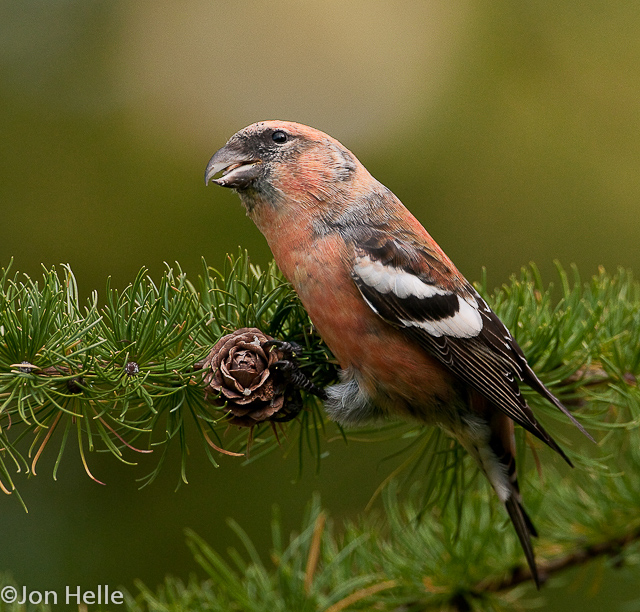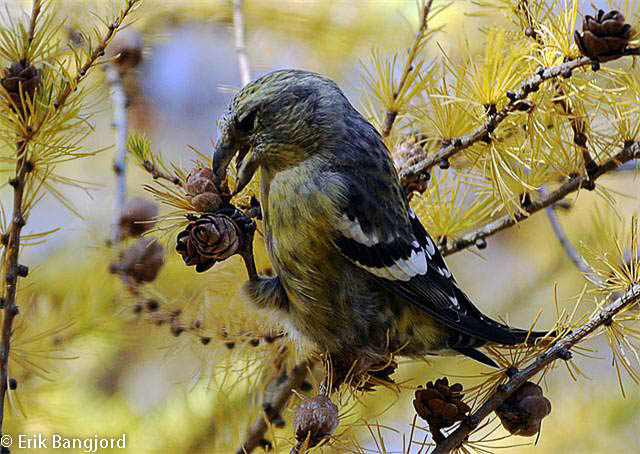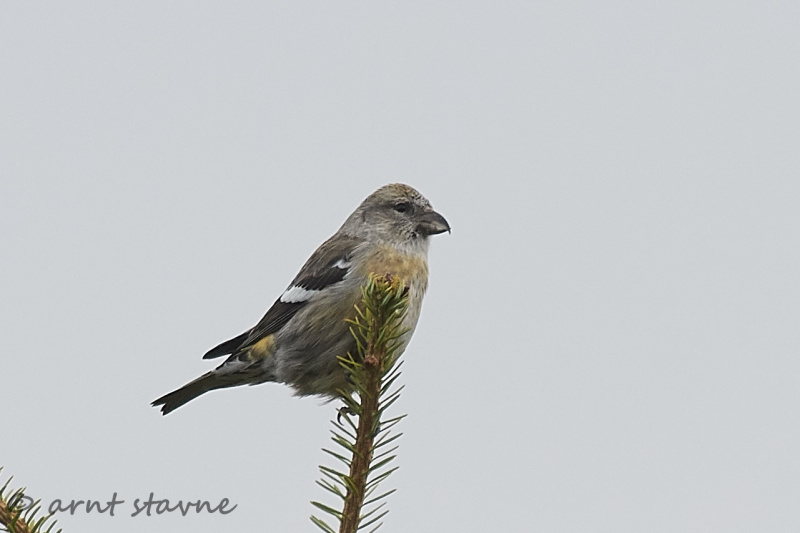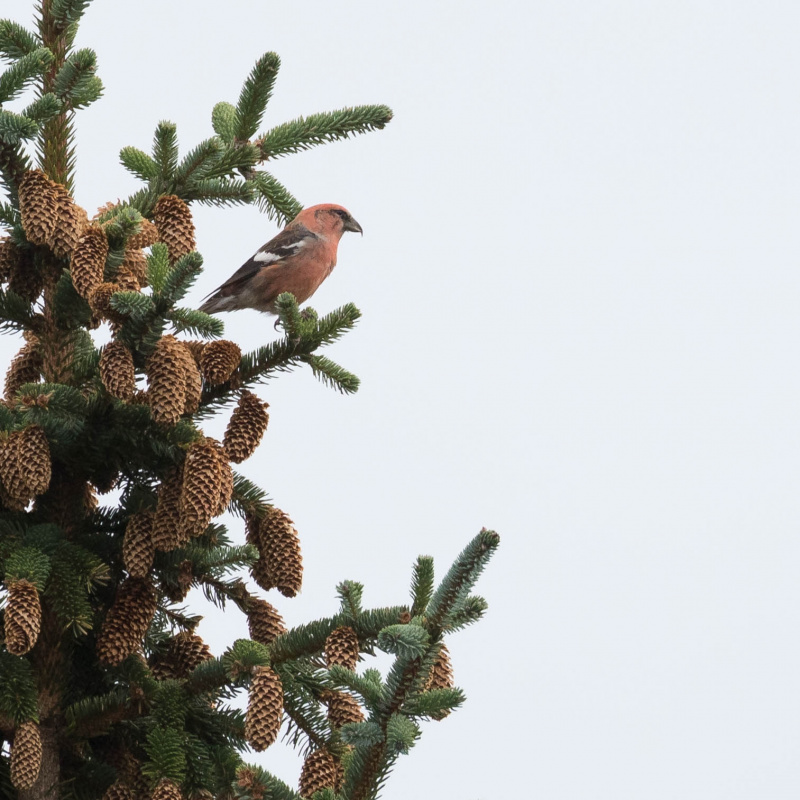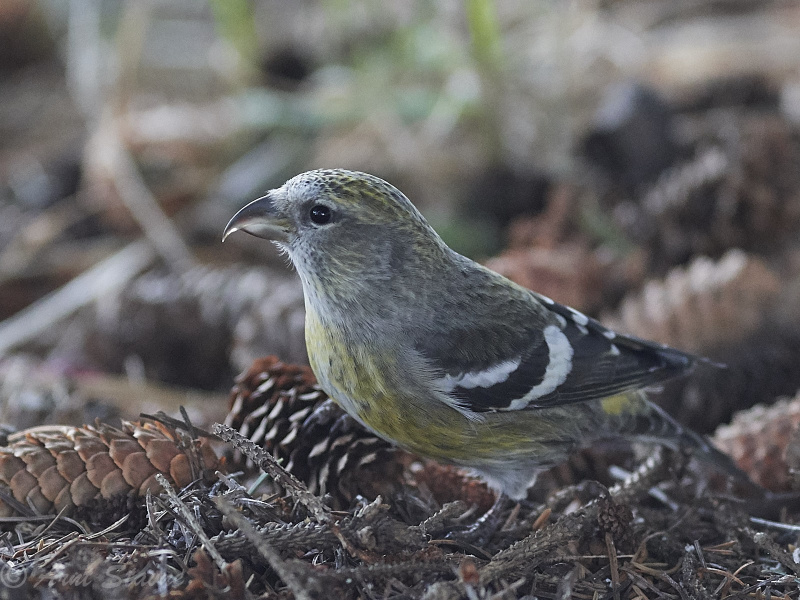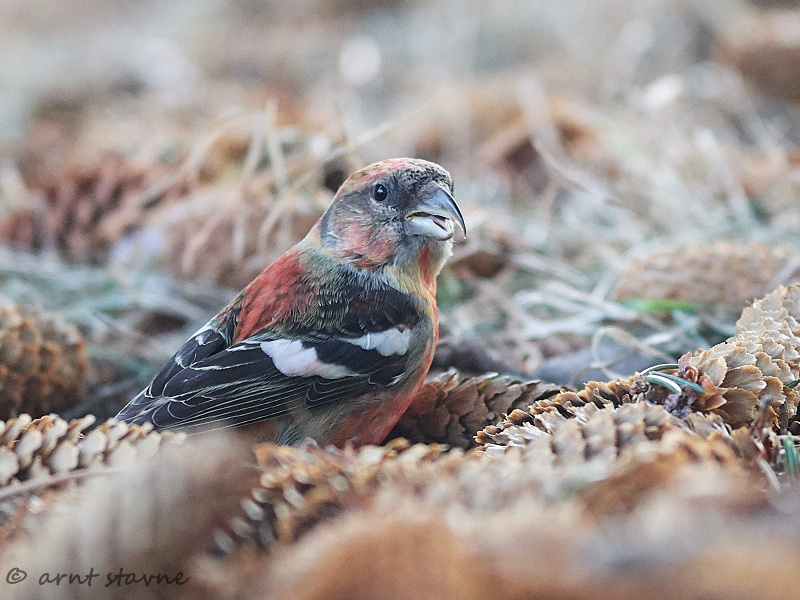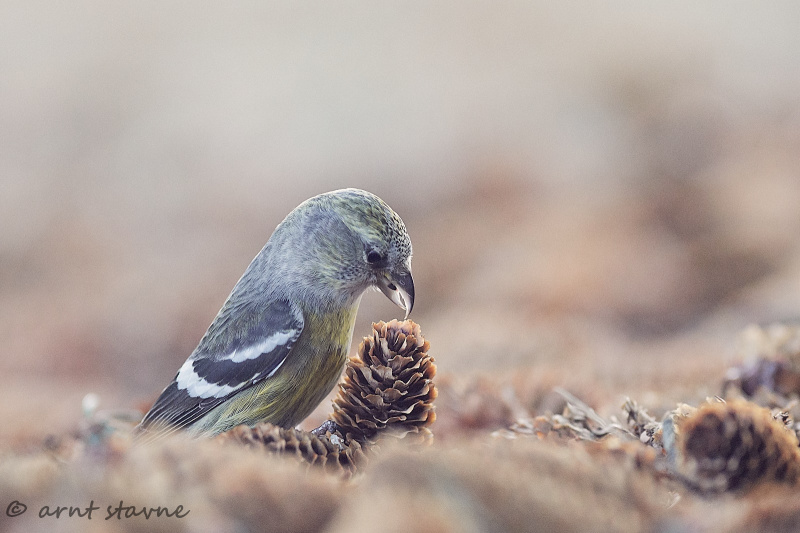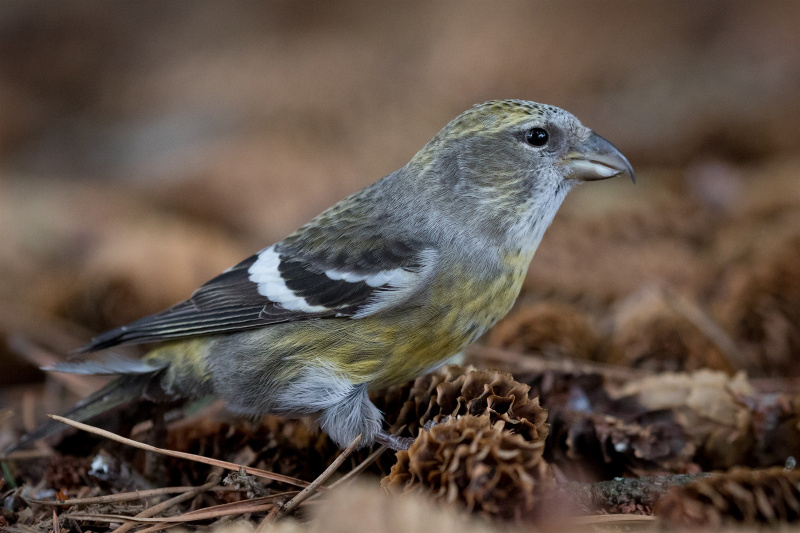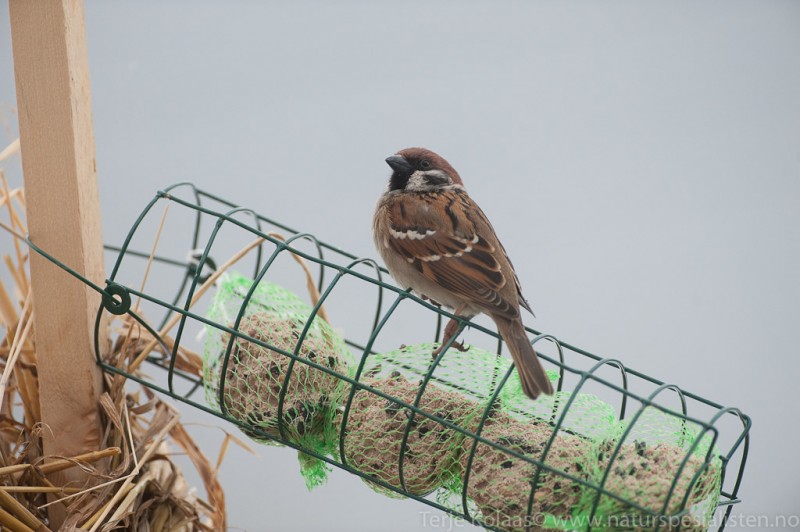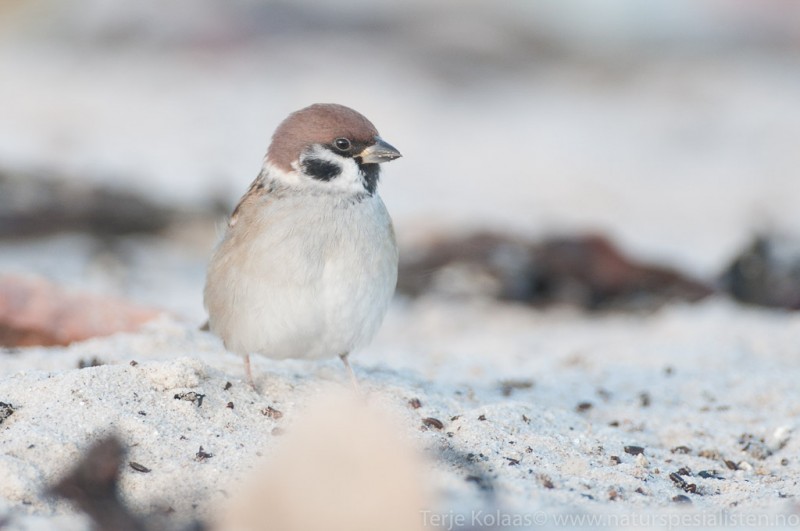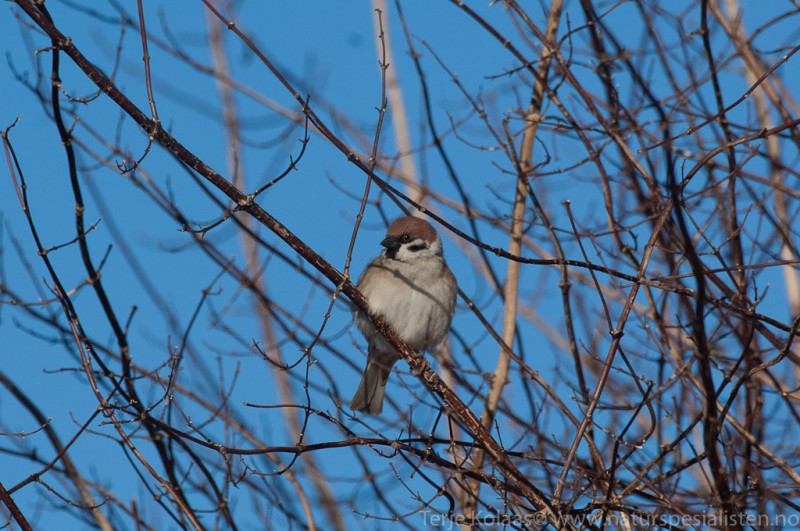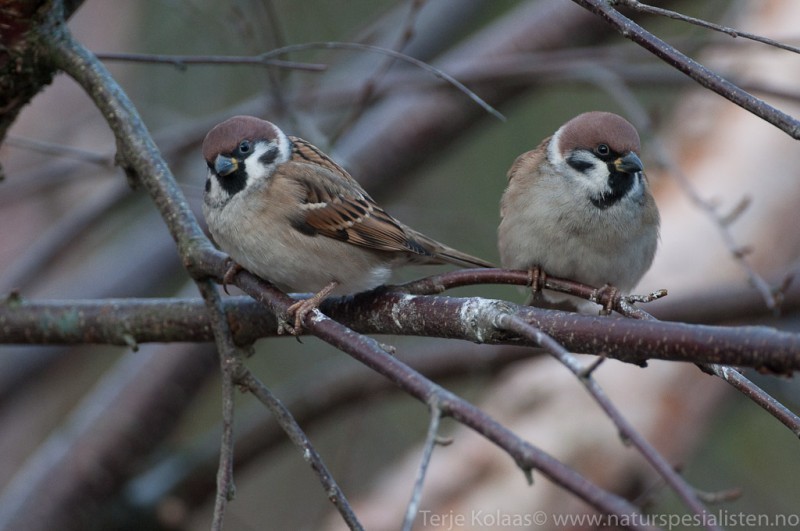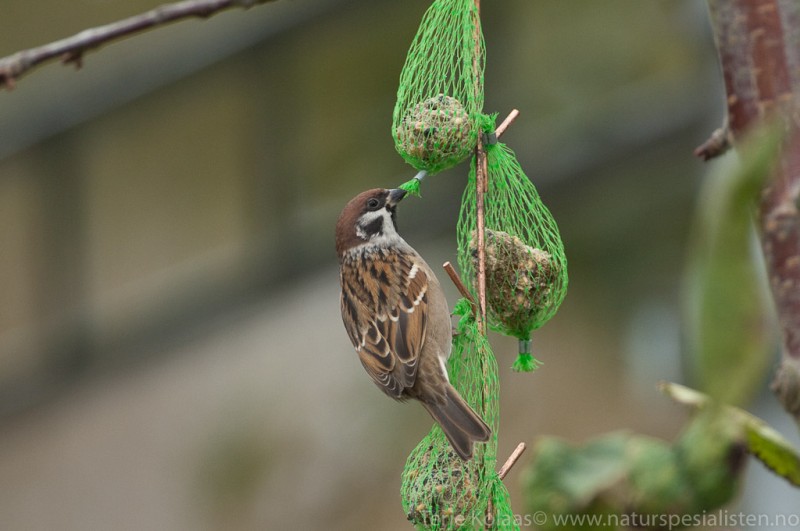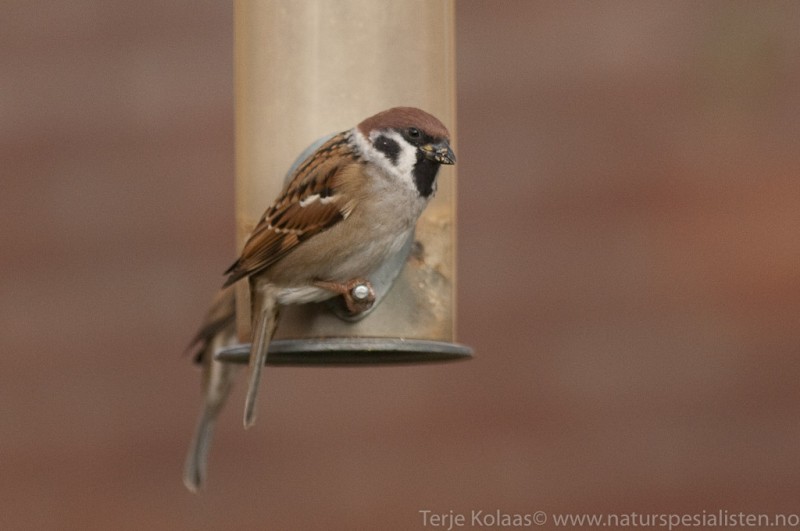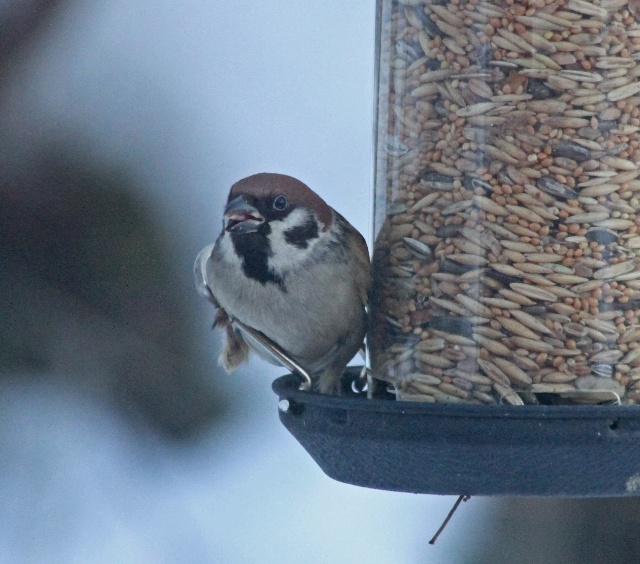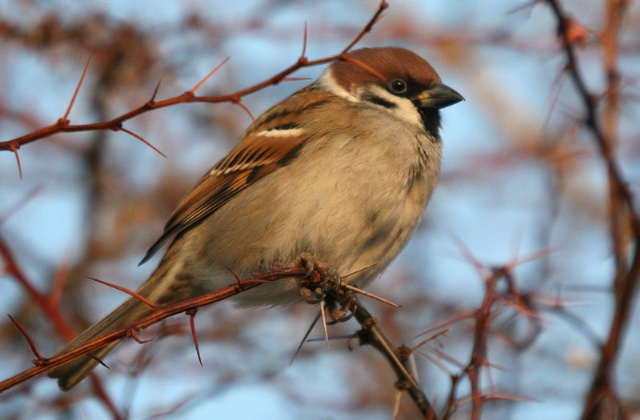Two-barred Crossbill (Loxia leucoptera)
Tree Sparrow (Passer montanus)
Plumage like other crossbills; male red, female and juveniles green. Both sexes and all ages with two broad, white wing-bars, which distinguishes it from congeners. Nonetheless, the species is easily overlooked when in mixed flocks with other crossbills. Build slightly more slender and long-tailed than other crossbills. Often discovered through its contact call.
Sound:Contact call a "chep chep" similar to crossbill but softer, interspersed with characteristic, toy-trumpet call with redpoll-like timbre, but with a more flat intonation. Song more like redpoll than a crossbill, with rattling and chittering notes.
Calls:
Distribution:
Wikipedia: map (se also Xeno-canto below)
Ecology:Birdlife ecology
Links:
Observation.org Latest observations
Image search Flickr NB! May give other species
CCSounds: Recorded by Patrick Åberg,http://www.xeno-canto.org/ ,CC license
Differs from House Sparrow by warm brown crown, white cheeks, white (incomplete) collar and diagnostic, black cheek patch. From Spanish Sparrow by cheek patch, and lack of black breast markings. Brown and streaked rump. The black bib does not expand towards the chest. Head profile rounder and neater than House Sparrow, with slightly smaller bill. Identification by profile alone is possible with practice. Sexes and ages alike.
Sound:Distinct, high-pitched and explosive contact-call; "che-witt" typically given in flight. Second syllable rising rapidly in pitch. Most other sounds similar to House Sparrow, and may be difficult to identify. Chattering sounds are generally harder, and song slightly higher pitched than House Sparrow.
Call and song:
Distribution:
Wikipedia: map (se also Xeno-canto below)
Ecology:Birdlife ecology
Links:
Observation.org Latest observations
Image search Flickr NB! May give other species
CC
 English
English Albanian
Albanian
 Armenian
Armenian
 Bulgarian
Bulgarian
 Catalan
Catalan
 Croatian
Croatian
 Czech
Czech
 Danish
Danish
 Dutch
Dutch
 Finnish
Finnish
 French
French
 Georgian
Georgian
 German
German
 Greek
Greek
 Hungarian
Hungarian
 Italian
Italian
 Latvian
Latvian
 Lithuanian
Lithuanian
 Macedonian
Macedonian
 Norwegian
Norwegian
 Polish
Polish
 Portuguese
Portuguese
 Romanian
Romanian
 Russian
Russian
 Sami : Lule sami
Sami : Lule sami
 Sami : North sami
Sami : North sami
 Sami : South sami
Sami : South sami
 Scientific names
Scientific names
 Serbian
Serbian
 Spanish
Spanish
 Swedish
Swedish
 Ukrainian
Ukrainian

